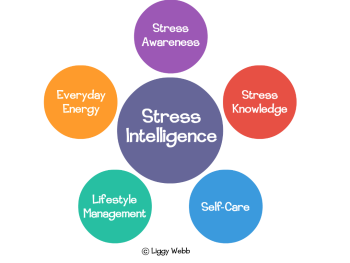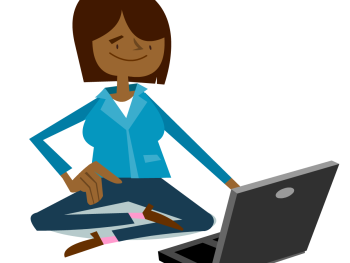Anxiety is a natural human response when we feel that we may be under threat and many people feel anxious at times especially when coping with stressful situations or life changes.
When we get anxious, we can feel tense and nervous and find it hard to switch off and relax. Anxiety may even trigger feelings of fear, dread and uneasiness. We can become emotional and irritable and struggle to eat properly, relax or sleep well. We may even find ourselves reaching for unhealthy coping mechanisms in a desperate bid to feel better.

There are so many things that can trigger our anxiety including stressful situations, trauma, relentless change, uncertainty, conflict, toxic relationships and even our diet can have an impact on how we feel.
So, here are 10 things that we can do to reduce and manage our anxiety and build a useful toolkit of helpful coping mechanisms.
1. Talk to someone
When we feel anxious reaching out and asking for support is a sign of courage not weakness. We are all human and with that comes a whole host of vulnerabilities. So many people experience anxiety and mental health problems at some point in their lives.
Being able to talk to someone about how we feel can be so cathartic and it is also the first step to getting the necessary support we may need. Talking to someone we trust who can offer a psychologically safe space for us to share how we are feeling will help us to get some perspective and release pent up emotions.
Trusted friends, family and work colleagues can be a great support however if symptoms of anxiety persists then reaching out for professional support is an option too.
Many organisations offer counselling support through employee assistance programmes, so it is a good idea to explore what support is available. If your anxiety is impacting on your health, it is also important to speak to a medical professional.

2. Establish healthy boundaries
Setting healthy boundaries can help us to feel more grounded, less overwhelmed and reduce anxious feelings. There can be a tendency in the modern world towards self-sacrifice and even workaholism which can lead us to compromise our boundaries and sacrifice our wellbeing to please other people.
To set healthy boundaries we need to know where we stand by identifying our physical, emotional and spiritual limits. We need to consider what we can tolerate and accept and what makes us feel uncomfortable, stressed and anxious. The first step to defining our boundaries is to understand what energises us and what depletes us. So set aside some time to reflect and ask yourself the following questions:
- What is causing me unnecessary stress or discomfort in my life right now?
- What tiggers my anxiety?
- Who in my life energises me and who in my life drains me?
- What areas of my life do I feel exhausted by?
- What helps me to feel inspired and happy?

3. Manage negative mind chatter
Negative mind chatter can be exhausting, especially if we are worried about something and it is playing on our mind. Reframing our thoughts can be helpful in calming negative thinking.
Here are six questions to help reframe negative thoughts:
- What else could this mean?
- Am I jumping to negative conclusions?
- What is the best part about this situation or person?
- Am I filtering out the positives and dwelling on the negatives?
- What are the benefits of these thoughts to me?
- What is one positive thought that I can focus on right now?

4. Breathe mindfully and relax
Mindful breathing is the easiest form of relaxation and when we focus on our breathing it can help us to calm down and ease feelings of anxiety. There are many simple breathing exercises that are very easy to do and require no equipment and can be done anywhere.
When we intentionally slow down our breath it lets us know that everything is okay. It helps us to activate our parasympathetic nervous system which is a network of nerves that relaxes our body after periods of stress. When we focus on deep breathing it slows our heart rate, lowers our blood pressure and promotes digestion. By focusing on our breathing our body enters a state of relaxation, and this relaxation helps us to feel calmer and less anxious.
One simple way to feel calmer is to inhale for a count of 4. Hold the breath for a count of 4. Exhale for a count of 4. Repeat up to 10 breaths. Increase to a count of 6 if you want to deepen the practice. Breathing through our noses offers great benefits and alternative nostril breathing is helpful too.
I would highly recommend this book – Breath: The New Science of a Lost Art by James Nestor if you would like to learn more about the benefits and science of breathing to reduce anxiety.

5. Get moving
Exercise can help ease depression and anxiety by releasing feel-good endorphins and other natural brain chemicals that can enhance our overall wellbeing.
Regular physical activity can increase our self-esteem and play an important role in preventing the development of mental health problems. Even doing a few minutes of stretching can be beneficial because stretching has been shown to increase serotonin levels which is the hormone that makes us feel good and can decrease anxiety.
Getting some fresh air and getting outside as much as we can will also have a positive impact on our anxiety levels.

6. Listen to music
Music is also a great way of helping us to relax, relieve stress and ease any anxieties we may have. It can also help us to function better mentally and physically. A variety of studies have found that listening to music can help calm our nervous system and lower cortisol levels, both of which can help reduce anxiety
Music is also regularly used for meditation and as an aid for sleep disorders. Some studies have suggested that slow, gentle, soothing music can also improve learning, creativity and memory. My favourite piece of soothing music is Bluebird by Alexis Ffrench (Yep two f’s in the surname) . It is so lovely and so calming 🙂
7. Declutter
Take a good look at your life and work out what is important to you. It can be so easy to accumulate stuff and overcomplicate our lives if we are not careful. Mess and clutter doesn’t help us to feel relaxed. There is real beauty in keeping things as simple as possible and avoiding stuffocation!
Decluttering and being tidy will help us to feel far more organised and calmer. It can make us feel really anxious trying to find things in a cluttered environment. Every now and then it can be very therapeutic and cleansing to have a sort and work out what we don’t really need any more and ensure a tidy and minimalist environment where possible.

8. Reduce stimulants
Drinking alcohol may well take the edge off anxiety at first because it is a natural sedative. However various studies have shown that decreasing alcohol intake can improve both anxiety and depression. Drinking heavily can interfere with the balance of neurotransmitters by triggering an imbalance that may lead to symptoms of anxiety.
Also, it is worth bearing in mind that if you are experiencing anxiety then drinking too many caffeinated drinks may cause nervousness and even jitters. Herbal teas are a great alternative and can help us to relax by provide a mix of calming ingredients. For example, teas containing lavender, valerian, rose and chamomile soothe and calm the nervous system.
Sipping something soothing can also give you an opportunity to slow down and relish the present moment. The whole ritual of making a cup of tea then sitting down to sip the tea, peacefully, is a form of relaxation in itself. Lovely!

9. Explore the benefits of nature
The natural world is the foundation of our health, wellbeing and prosperity and exposure to nature is beneficial for all of us as human beings. Connecting to nature can boost our mental health and contribute to our physical wellbeing by reducing blood pressure, regulating heart rate, easing muscle tension and managing stress levels.
There are so many ways that we can bring nature into our everyday life from indoor or outdoor gardening, exercising in the fresh air, exploring green spaces and being around insects and animals. Any way that we can connect with nature will have a positive impact on our overall wellbeing and reduce anxiety.

10. Let the laughter in
Laughter is one of the most powerful ways to diffuse tension and anxiety. Having a good laugh can decrease stress hormones and increase immune cells and infection-fighting antibodies. Laughter has so many benefits and can be such a great tonic, as well as helping us to relax. Even in challenging times it helps to seek out the funny side of situations.
Laughter also triggers the release of endorphins, the body’s natural feel-good chemicals. Endorphins promote an overall sense of wellbeing and can even temporarily relieve pain and reduce anxiety.











 Resilience – How to build your inner strength
Resilience – How to build your inner strength


